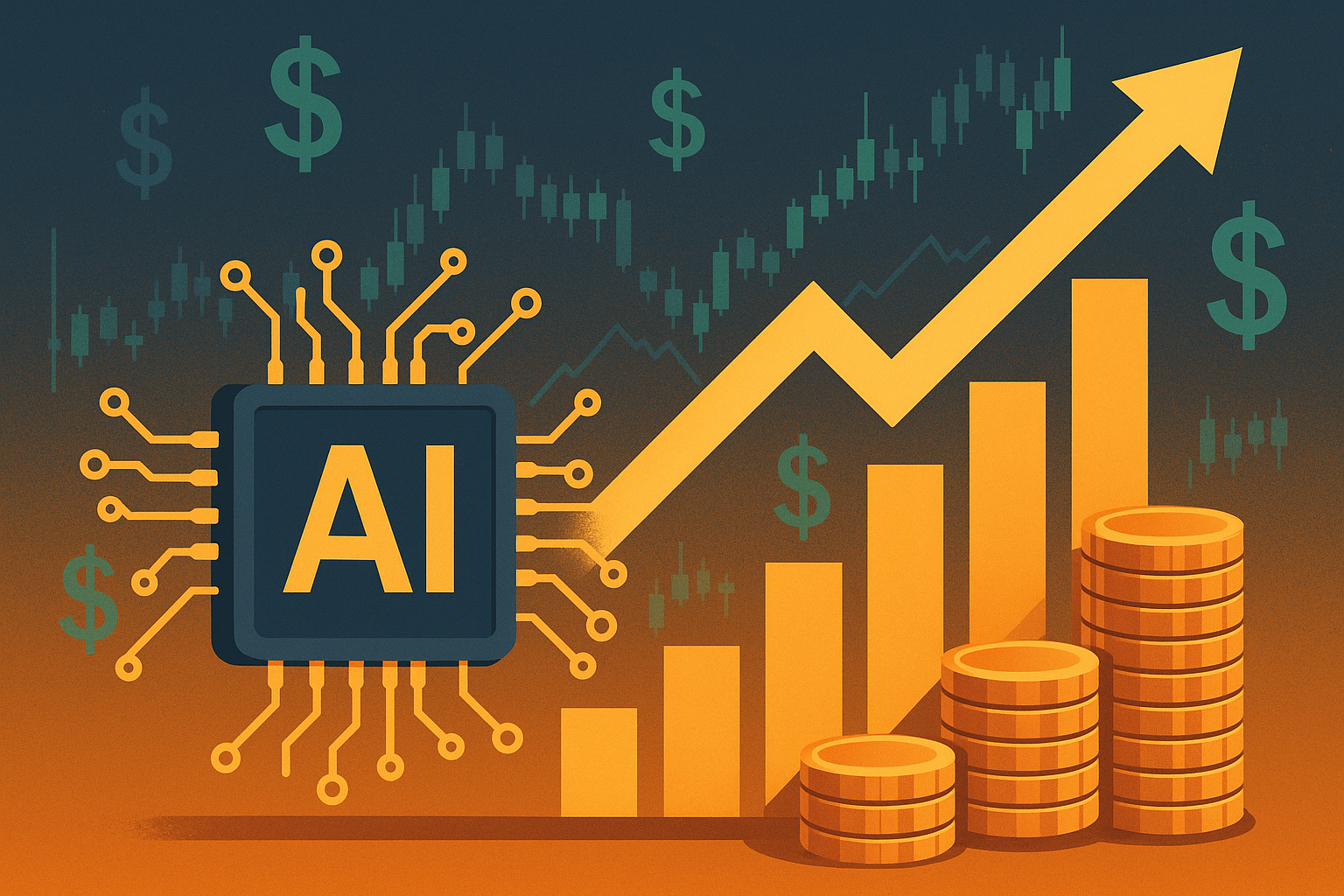Over the past few months, AI has been more than just a buzzword—it’s become the single biggest catalyst for Big Tech’s market resurgence. From cloud optimization to advertising algorithms, artificial intelligence is not only driving efficiency but also generating billions in fresh market value. Microsoft, Alphabet, and Meta have collectively added over $350 billion in market capitalization in recent quarters, underscoring a pivotal shift in how AI investment is being rewarded on Wall Street.
With Microsoft’s valuation climbing toward $4 trillion and Meta eyeing the $2 trillion mark, the AI arms race is proving to be one of the most lucrative bets of the decade for institutional and retail investors alike.
AI Capex Surge: A Strategic Inflection Point
In earnings calls and quarterly filings, the message has been consistent: AI is no longer an experiment. It’s an engine. Microsoft CEO Satya Nadella noted that “AI is infusing every layer of the tech stack,” with the company committing tens of billions to new data centers and AI infrastructure through 2025.
Alphabet echoed this sentiment, emphasizing how AI has enhanced Google Search, Google Cloud, and advertising targeting—translating into stronger-than-expected Q2 results. Meta, meanwhile, has seen record user engagement and ad efficiency improvements, thanks to AI-powered content ranking and delivery systems across Instagram and Facebook.
These firms are not just spending—they’re strategically allocating capital toward AI labs, chips (custom and via partnerships), and advanced model development. The results? Faster product rollouts, increased monetization, and margin expansion across key business units.
Why This Matters for Investors
For investors, this isn’t just a tech story—it’s a valuation story.
- Microsoft: Trading at a premium P/E, but supported by robust AI monetization across Azure, Copilot, and Office integrations. The stock has outperformed the S&P 500 by over 18% YTD.
- Alphabet: Benefiting from surging demand in its Google Cloud Platform and deep AI integration in search. Analysts at Morgan Stanley recently upgraded the stock, citing AI as a “margin accelerator.”
- Meta: Despite regulatory headwinds, the company’s investment in Llama 3 and AI-driven ad tools have led to an 11% jump in ARPU (average revenue per user) this quarter.
Crucially, these gains are coming amid a broader pullback in global growth expectations. Investors are favoring companies with defensible moats and growth stories that don’t rely on macro tailwinds alone. AI offers that rare edge.
Future Trends to Watch
???? AI Infrastructure Expansion
Expect continued growth in data center spending. JPMorgan estimates global AI infrastructure spend will top $800 billion by 2027, with hyperscalers like Microsoft and Alphabet leading the charge.
⚙️ Custom AI Chips
While Nvidia continues to dominate the AI chip space, Big Tech is hedging dependency by developing proprietary silicon. Watch Microsoft’s Maia, Google’s TPU, and Amazon’s Trainium as competitive levers.
???? Earnings Momentum
As AI tools like Copilot (MSFT), Gemini (GOOGL), and Advantage+ (META) are rolled out at scale, recurring revenues will likely improve. Monitor key metrics like customer adoption, AI-linked revenue growth, and gross margins in upcoming earnings.
Key Investment Insight
Investors should consider increasing exposure to AI-centric large caps, especially those demonstrating a clear revenue path from AI. Watch for earnings from Nvidia (NVDA) and AMD (AMD) as barometers for the broader AI ecosystem.
On the flip side, some traditional leaders—like Amazon—have seen AI adoption lag in key verticals such as AWS, leading to underperformance. Strategic rotation from laggards into outperformers may offer risk‑adjusted gains.
For ETF-oriented investors, funds like Global X AI & Technology ETF (AIQ) or ROBO Global Robotics and Automation ETF (ROBO) may provide diversified exposure to the trend.
The AI gold rush is no longer theoretical—it’s materializing in balance sheets and market caps. For investors watching the next chapter in Big Tech evolution, AI isn’t just the headline—it’s the bottom line.
Stay with MoneyNews.Today for daily investor briefings, where smart money meets sharp insight.





